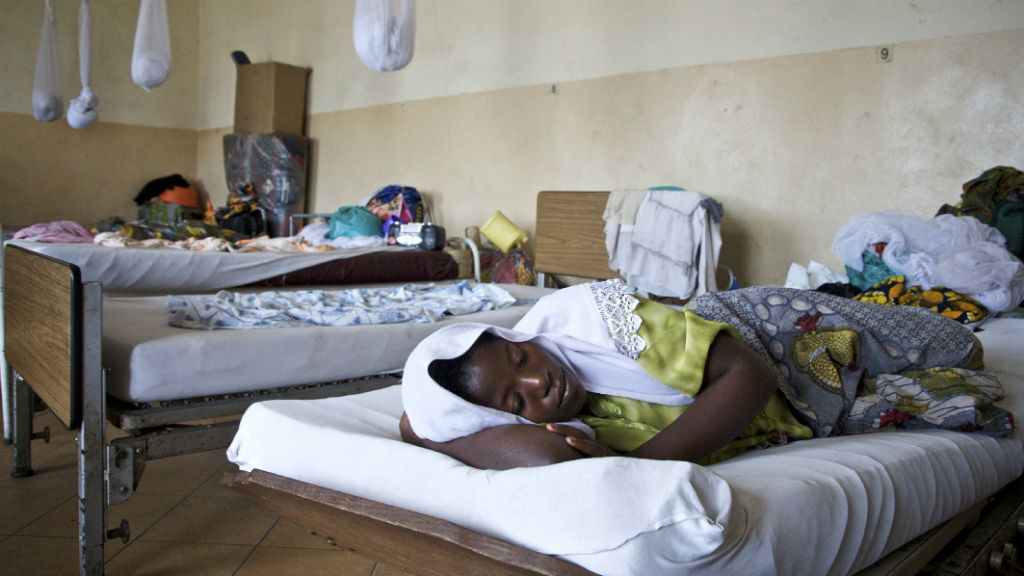Repairing the appalling injuries of warzone rape
 Cathy Newman
Presenter
Cathy Newman
Presenter
Cathy Newman writes from the DR Congo after meeting the doctors who treat the “battered and bleeding” victims of warzone rape.

You may find some of this article distressing
The Democratic Republic of Congo used to have an efficient and functioning road network snaking through the rainforest and across the mountain ranges. But in the east of the country, years of war have done for that. So getting around is logistically challenging as I discovered this morning.
I’m travelling with Angelina Jolie and William Hague, who are jointly trying to galvanise world leaders to end warzone rape. The plan was to meet the legendary gynaecologist, Denis Mukwege, who specialises in repairing the appalling injuries women suffer during rape.
But the hospital where he operates in Bukavu is around five hours by bumpy, pot-holed road – actually little better than a track – from Goma, the regional capital. There is a boat, but that takes three hours, and Lake Kivu is prone to attack by pirates.
So the Foreign Office had arranged a UN chopper to take us to the hospital. Sadly they couldn’t arrange the Congolese weather. So having traipsed on board, engines revving, 20 minutes later that helicopter wasn’t going anywhere – a tropical storm made it too dangerous to fly.
It was hugely disappointing.
Dr Mukwege has acquired an almost mythical status in his field. He’s seen as such a hero for the difficult and vital work he does that when he went into exile after an assassination attempt last autumn, women locally apparently started to raise the funds for his airfare home. He is now operating again in Bukavu, but thanks to the deluge and the Congolese road network, the interview will have to wait for another visit.
But the mandarins did what mandarins do, and came up with an alternative plan, which proved every bit as inspirational.
Meeting Dr Lusi
We bumped up the road to central Goma, the Heal Africa hospital, run by Dr Jonathan Kasereka Muhindo Lusi, known to everyone there as “Dr Lusi”. It was actually his late and much-beloved wife, Lynn Lusi, who came over from the UK to set up the hospital. He carried a framed photo of her under his arm to show his unexpected visitors.
He took us to a ward where each woman was being treated for a fistula. Dr Lusi made no apology for explaining to the foreign secretary and the film star turned UN envoy that this is what happens when women are raped and are literally torn apart internally by their attackers. Sometimes after the attack they are penetrated by sticks, knives or guns. Sometimes the weapons are fired, causing catastrophic internal wounds or death.
Some of the women on the ward had been raped up to five times. But Dr Lusi explained that if – in rare instances – the men are brought to justice and imprisoned, the prisons have no doors or windows, so they escape. If they’re fined, they can’t afford to pay the fine, so they don’t.
When so many of the attackers are Congolese soldiers, it’s hard to see how the government can be persuaded to take action, still harder how women will be able to identify their assailants, disguised as they are by their uniforms.
And above all, with fighting still going on in the country, despite a tentative peace agreement, all these efforts may be in vain.
But Dr Lusi is surely right that governments in the Congo and beyond must redouble their efforts to get justice for these battered and bleeding women.